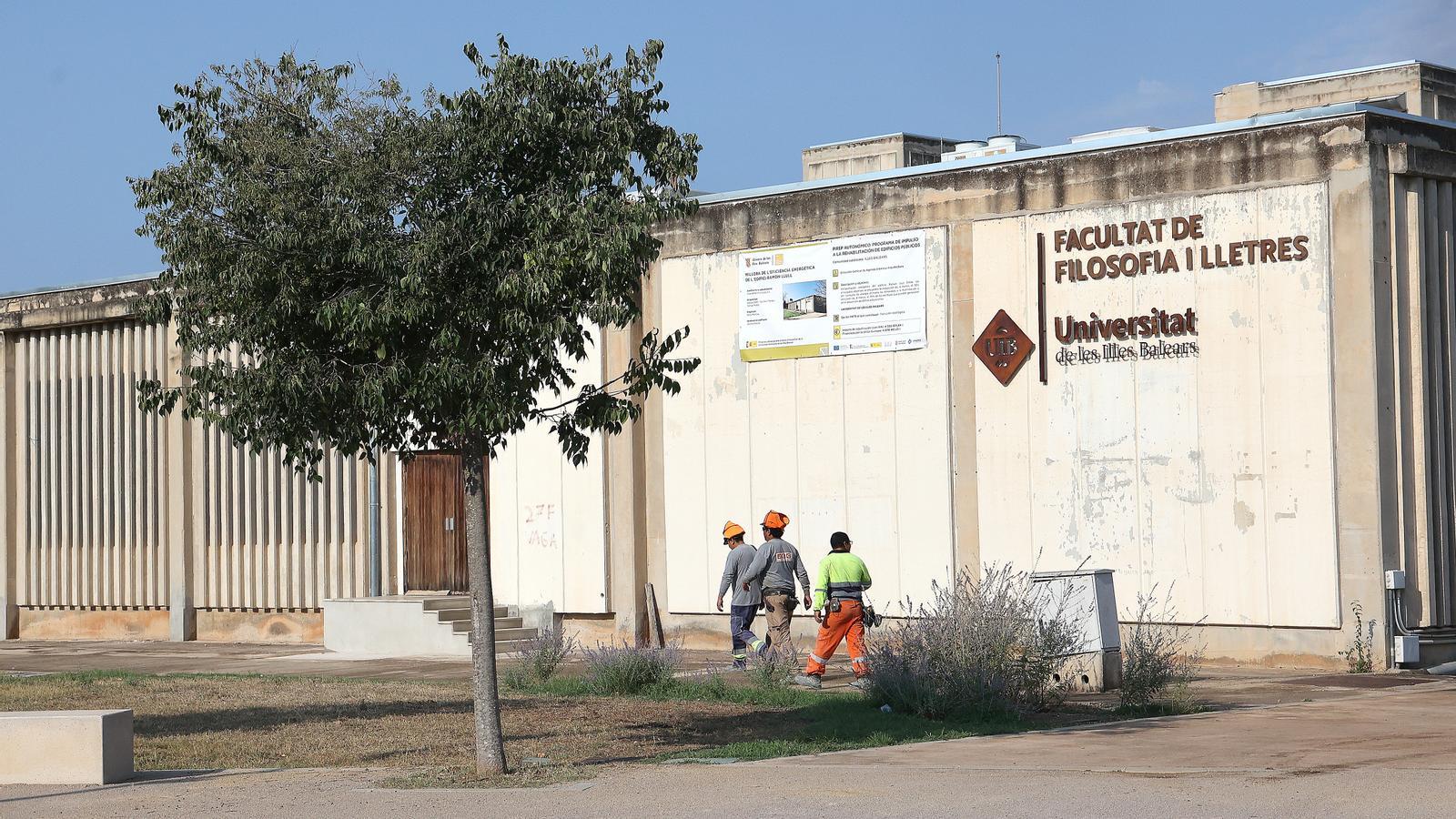"It's not possible that, because of the heat, people risk their lives at work."
Unions denounce the lack of awareness among companies and institutions that extreme temperatures are a danger to workers.


PalmThe 16-day heat wave that ended this week has set off alarm bells for unions. "People can't be risking their lives at work," warns Tino Davia, Secretary of Occupational Health and Environment for the UGT Public Services. He warns of a lack of awareness among employers and public institutions that the extreme temperatures of recent years threaten workers' health. "Between climate change deniers and those who believe buildings are not adapted because they were designed for another era, we have a serious problem," he insists.
As reported by the Ministry of Labor, in 2024 (the latest year for which data is available), 759 inspections were carried out specifically to check the "environmental conditions" of workers in the Balearic Islands. Four violations were detected, and 59 correction requests were issued to companies. 28,281 euros in fines were also imposed. The same sources explain that, since 2021, occupational risk prevention policies have been strengthened with "heat-specific" actions—such as mass mailings to companies—and inspections in at-risk communities, such as the Balearic Islands.
However, the UGT (General Union of Workers' Unions) has denounced an "underdiagnosis" of cases of workers affected by extreme temperatures by the State. "Not all cases that occur are reported; there is no clear data," explains Davia: "The official figures are low; they do not reflect reality." Both the Ministry and several unions consulted report that the sectors most at risk due to the temperature are the agricultural sector, construction, the hospitality industry (due to kitchens, which accumulate heat), cleaning services (especially those working outdoors), and dry cleaners or greenhouse workers.
The highest-risk sectors
"We've documented cases of extreme heat in the manure collection area, because they didn't have air conditioning in the vehicles; also that of a worker from a PAC, as well as some laundry services, where they were without water, and some security towers," explains Miguel Pardo, general secretary of the Federation of Construction and Services of . Another case is that which affected the cleaning workers at the UIB, many of them with a disability. For three weeks in August, they had to work in buildings that were practically completely closed, with temperatures reaching 40 degrees and without air conditioning. "In summer, everyone leaves and they turn off the air conditioning," noted one of the workers: "We have to endure it."
To avoid heat exhaustion, they splashed themselves with water from the sinks and took more breaks outside, because in some of the faculties, with large glass windows and windows that can only be partially opened, a greenhouse effect was generated. As witnesses explained, there was at least one fainting spell during work hours. After ARABalears made the case public, the UIB apologized and announced that it would review the contract with the bidding company to ensure the situation does not occur again.
The CCOO delegate at the airports, Ramon Carreras, also emphasizes that heat exhaustion has been documented among workers at Palma airport, as well as at the airports in Menorca and Ibiza. "The ones who suffer the most are the baggage handlers," he explains, recalling the latest Aemet study, according to which the extreme temperatures of recent months have resulted in 1,180 deaths across Spain.
According to data from the Regional Ministry, the IB-Salut (Health Institute) received up to 26 reports of suspected heat stroke in 2025—it is unknown how many were in the workplace. Of these, four were confirmed, and the rest were less serious. According to Health data, there has been an increase in cases in recent years as a result of climate change. Between 2013 and 2023, there were 46 confirmed cases of heat stroke: of these, 13 were associated with work-related activities.
"The Prevention Law states that risks must be assessed, and heat can be one of them, because you can die from heat stroke," Carreras insists. "What do many companies do? They complete the paperwork, they implement the protocols." Davia also notes an increase in complaints from government workers, especially in Education, due to the lack of adaptation at schools. "High schools were adapted in the 1970s; the vast majority were built before these heat waves," he explains. "Before, June wasn't as hot as it was this year." Although the Regional Ministry has provided fans, it's not enough, he warns: "We need a climate control plan for schools."
Right to leave the workplace
The Spanish Occupational Risk Prevention Law establishes that when workers are exposed to a "serious and imminent" risk at work, the employer is obliged to inform them of this as soon as possible and take the necessary measures to protect them. If necessary, employees even have the right to leave their jobs. Regarding temperature, limits were introduced in 1997 through a Royal Decree-Law: between 17 and 27 degrees for sedentary work in offices, and between 14 and 25 degrees in premises where light work is performed. Since 2023, certain outdoor work is also prohibited during the central hours of the day when there is an orange or red alert for high temperatures. In these cases, companies must adapt workers' working conditions to prevent risks. This has been done for several years in certain companies, especially in the countryside, where workers are most exposed. "In the fields, it's very difficult to work during the hottest hours of the day," explains Joan Gaià, coordinator of the Unió de Pagesos employers' association: "Working at night or very early in the morning is a way of combating the heat."
One example is Macià Batle. As the company's director, Ramon Servalls, explains, workers have been coming in after dusk for a few years now: "We normally start when it gets dark; it was suggested and people welcomed it." He explains that they have also extended the machine harvest: "People's performance during the heat wave is not good, and it's totally inhumane for people to work from 12 to 4 pm."
